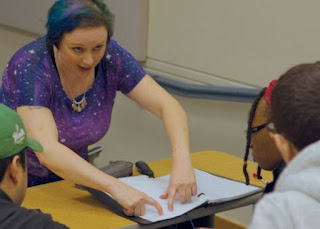The Physics Today article, 'College Physics Instructors Adapt TheirTeaching To Prevent Cheating' (August, p. 25) was mind blowing. We learned, for example, that cheating - especially on class tests, homework has become as endemic as the pandemic since the lockdowns. Indeed, math and physics college instructors across the U.S. and beyond are grappling with how to deter cheating and reassessing how they assess their students.
Who or what are the primary culprits in this new cheating venue? Most of the profs cited in the PT piece appeared to blame a website called 'Chegg'. Why Chegg? Well, as we learned "Chegg offers libraries of searchable solutions and the option to post new problems with requests for solutions" . Other companies provide similar services to Chegg, e.g.: Quizlet, Bartleby, and Course Hero. Quizlet profits through advertising only while the others charge monthly fees ranging from $9.95 to $39.99.
- Lagrangian Dynamics Revisited (1)
- And:
- Revisiting Lagrangian Dynamics (2)
- And note one of the problems offered for readers in the latter post:
1)Find the Lagrangian of the double pendulum shown in the sketch below which includes two masses, m1 and m2, at two angles to the vertical, f1 and f2.
Let:
2L1 cos f1 f1’ L2 cos f2 f2’ + L1 2 sin 2 f1 f1’ 2 +
L2 2 sin 2 f2 f2’ + 2L1 L2 sin f1 sin f2 f1’ f2’ )
Therefore:
a)A group of 4
astronauts lands on Mars with solar radiation collection material of total area
2000 m 2. If the efficiency of the material is 30%,
and the ambient night time temperature on Mars (for their base location at
Isidis Planitia) is -40 C (10C day time), will they have adequate collecting
material if the solar constant on Mars is 620 W/ m 2 ? (Assume insulating material with a thermal
conductivity of 0.08 W/mC, and a need to keep the inside area of their domecile
at least at 10 C, requiring solar radiant energy collected of at least 1,200 W
per minute for an area of 10 m x 10 m.)
c) Estimate the thickness of insulating material
they're likely to need in order to make it work. Comment on whether this
expedition is even feasible given the limits of their materials, and that no
more than 100 m3 of insulating material can be taken.
I suspect analogous inquiry problems in classical mechanics, quantum mechanics, or thermodynamics problems can also be prepared if an instructor is creative enough. What we can't keep doing is making excuses for less able or disadvantaged students to cheat and upset the distribution for everyone. It isn't fair and certainly isn't American.
Short of that, I don't see how physics (or math) cheating can be stopped anytime soon. But banning virtual (out of class) exams, tests, would be a superb start - if departments have the will to do so.
See Also:
Grade Inflation Continues to Render Most College Scholastic Honors, Achievement Meaningless



No comments:
Post a Comment